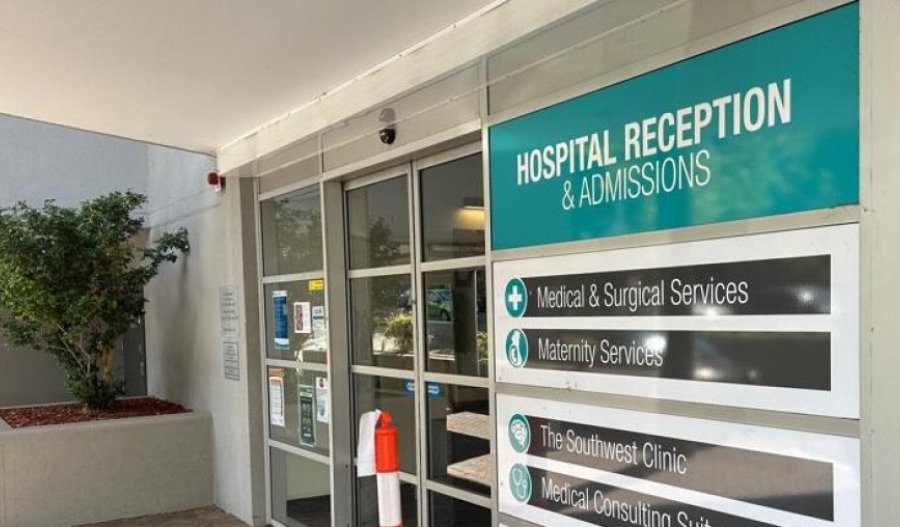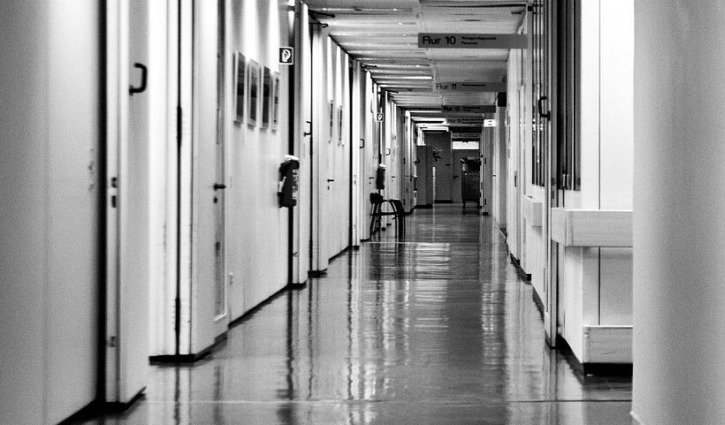“Over my dead body."
This quote from the CEO of collapsed private hospitals group Healthscope reveals how sick the relationship is between Australian private hospitals and health insurers.
Tino La Spina was commenting on the possibility that British health insurance company Bupa would buy the company out of receivership.
Although he will not determine who purchases the company or its 37 hospitals, La Spina’s extraordinary statement resonated with other key players in the A$23 billion-a-year private hospital industry.
This includes private hospitals and their peak bodies and unions representing doctors and nurses like the Australian Salaried Medical Officers Federation (ASMOF).
“These comments are indicative of the nationwide divide between private health care providers and insurers,” NSW ASMOF and emergency physician member Tatiana Lowe told Azzet.
Owned by Canadian private equity giant Brookfield since a $4.1 billion (US$2.7 billion) takeover in 2019, Healthscope collapsed due a combination of factors including its $1.6 billion of debt and operational difficulties.
Another example of the challenges facing a sector squeezed by rising costs and constrained revenue came this month with the 58-bed Brisbane psychiatric facility Toowong Private Hospital shutting down in a closure the Australian Private Hospitals Association blamed on "rapacious profiteering" by health funds.
The revenue of private hospitals is from private health insurance (45%), the Medicare universal health insurance scheme (37%), patients through out-of-pocket expenses (11%) and donations and non-government funding (7%), according to University of Melbourne Professor of Health Economics Yuting Zhang.
Position of power
Zhang said health funds were in a powerful position when negotiating funding with private hospitals, able to decide if a hospital was in their preferred network and if its patients have to pay a gap for treatment.
She said private hospitals across the board were struggling with soaring costs for staff and supplies, while private health insurance was not paying enough to cover these expenses.
“These underlying issues will not disappear magically. More private hospitals will face similar financial troubles and some will be forced to close. But we’re unlikely to see the collapse of the entire private sector,” Zhang wrote in an article in The Conversation.
“But the private sector is so large and so important in the Australia market, they'll never go away. So in the end, who is paying for that?”
ASMOF’s Lowe said patients and clinicians should be involved in discussions about the future of private hospitals and advocate for the health system.
“There is a definite place for private hospitals and private health insurance, but patients and clinicians should not end up worse off because of either,” she said.
Catholic Health Australia (CHA) Director of Health Policy Dr Katharine Bassett said CHA members were required to negotiate individual contracts with private health insurers, many of whom were large, for-profit entities with significantly greater bargaining power.
Even smaller health insurers can collectively negotiate.
“So the power usually sits on the insurer side rather than the provider side,” Bassett told Azzet.
Changes needed
CHA, which represents 63 private and 17 public not-for-profit hospitals, has called on the Australian government to:
- set a 90% minimum payout ratio for private health insurers
- incorporate evidence private hospitals’ cost pressures into the annual premium-setting process, and
- allow an independent pricing body to determine a National Private Price for private hospital services
Bassett also said insurers were responsible for funding care, not delivering it, and any move to combine these roles would create a clear conflict of interest.
“When a funder also provides care, there’s a risk that decisions will be driven by cost containment rather than clinical outcomes,” she said.
“Maintaining a clear separation between funding and service delivery is essential to protect patient care and uphold clinical integrity. “
Griffith University Professor of Health Economics Prof. Paul Scuffham said Healthscope collapsed because it charged patients too much, which in turn affected health insurer profitability.
“It's a signal to other private hospitals in the country that if you charge too much, health insurers are going to take their business elsewhere, so they've got to be cost conscious,” Scuffham said.
“That's tough because it's not like other goods and services - you're dealing with sick people and people at the end of their lives.
“You want to keep people alive so you can make more money but if you're going to do that you can't charge them excessively or deny them treatment. So it's a balancing act.”
But he believed private hospitals would play an important role in the Australian health system.
“It’s essential to keep it going. It already exists and it fill an a really important niche the healthcare system,” he told Azzet.
Curb specialists' fees
Private Healthcare Australia, the peak body for health insurers, said the rising cost of seeing specialists like psychiatrists, obstetricians and cardiologists was decimating demand for private hospitals and undermining health insurance value.
The body called on the Australian Government to urgently act on the Grattan Institute report Special treatment: Improving Australians’ access to specialist care including its five-point plan:
- withdraw Medicare funding from specialists who charge excessive fees
- publish doctors’ fees on the Medical Costs Finder website
- increase federal funding for specialist training, particularly in rural areas
- recognise overseas specialist qualifications to boost the workforce, and
- modernise the public specialist system by expanding clinics and enabling general practitioners to consult specialists for better care coordination.
“If a doctor is charging you nearly $1000 up-front for an appointment in their rooms before they even discuss treatment in a private hospital, that is a massive barrier to private hospital care,” Private Healthcare Australia CEO Dr Rachel David said in a media release.
David also said she was optimistic the private health system would be “better off without Brookfield”.
“We have a good supply of private hospital services across most parts of the country, so we are confident people with hospital cover will retain access to high quality services near their homes,” she said.



